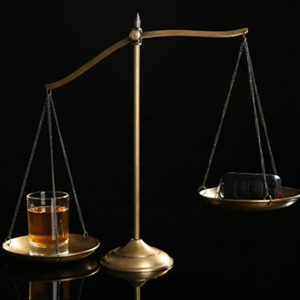Navigating Court Requirements For A San Francisco DUI Case

- How to handle court attendance for a San Francisco DUI case.
- Why a not guilty plea at arraignment is crucial.
- The importance of staying available for court.
How Frequently Is Court Attendance Required In A San Francisco DUI Case? Is My Presence Mandatory?
In situations involving a DUI charge in San Francisco, it is a prevalent practice for a qualified DUI attorney to represent you during court proceedings, potentially negating the need for your direct attendance. The court acknowledges and accepts Zoom appearances in most cases for routine court appearances.
Your attorney can typically act on your behalf during crucial stages such as the arraignment and pretrial conferences, except when the court explicitly mandates your presence. Nevertheless, it is vital to remain readily available and on standby, as circumstances may arise in which your presence in court is required.
What Can I Expect During The Initial DUI Court Appearance In San Francisco?
The arraignment marks the commencement of your legal journey in a San Francisco DUI case. This significant stage involves a formal presentation of the charges you are facing, accompanied by a detailed explanation of your constitutional rights.
A plea of not guilty is commonly entered at this juncture, either personally or through your attorney. Simultaneously, the court will consider and establish any relevant bail or release conditions tailored to your specific case. Notably, individuals facing their first DUI offense in San Francisco often secure release on their own recognizance, often bypassing the need to post bail.
Nonetheless, the court might impose additional mandates, such as regular attendance at self-help meetings. What’s more, for those with a history of DUI charges or convictions, a more stringent approach, known as Assertive Case Management, may be adopted, introducing additional conditions like the installation of an alcohol-monitoring ankle device.
Individuals charged with a misdemeanor, DUI included, possess the right to a jury trial within a specified timeframe, which is contingent upon their custodial status at the time of the arraignment. These statutory time limits can be waived, permitting trial scheduling beyond the statutory period. Alternatively, you may choose to expedite the process, proceeding to trial within the statutory time frame. The arraignment concludes with the planning of subsequent court appearances.
When Is The Appropriate Time To Enter A Guilty Or Not Guilty Plea In DUI Proceedings?
The arraignment serves as the pivotal moment to enter a not guilty plea, an action that can be undertaken by either you or your attorney. Subsequent to this, your attorney may engage in negotiations, potentially leading to a resolution that circumvents the necessity of a trial. This may entail altering your plea to guilty or no contest.
It is crucial to understand that a no contest plea is tantamount to an admission of guilt, albeit without a formal acknowledgment of responsibility for the charges, and necessitates waiving your right to a trial in favor of accepting the court’s imposed penalties.
What Are The Consequences Of Pleading Not Guilty In A DUI Case Where Alcohol Is Involved?
Clients frequently question the reasoning behind a not guilty plea, particularly in cases involving alcohol before driving. However, it’s crucial to distinguish between drinking alcohol and driving while impaired or with a blood alcohol level of 0.08% or more. Choosing a not guilty plea guarantees the protection of the right to challenge the legality of the traffic stop and dispute the accuracy of the recorded blood alcohol level during driving.
The government bears the burden of proving a case, and without strong evidence, like trustworthy chemical tests of blood or breath, their case may not meet the necessary standard of proof. Thus, even in situations involving alcohol consumption or recorded levels above the legal limit, it’s wise to maintain a not guilty plea until all potential investigative and legal options have been fully explored with your attorney.
For more information on Defending Against DUI Charges In CA, an initial consultation is your next best step. Get the information and legal answers you are seeking by calling (415) 728-9982 today.

Call Now For A Personalized Confidential Consultation!
(415) 728-9982



